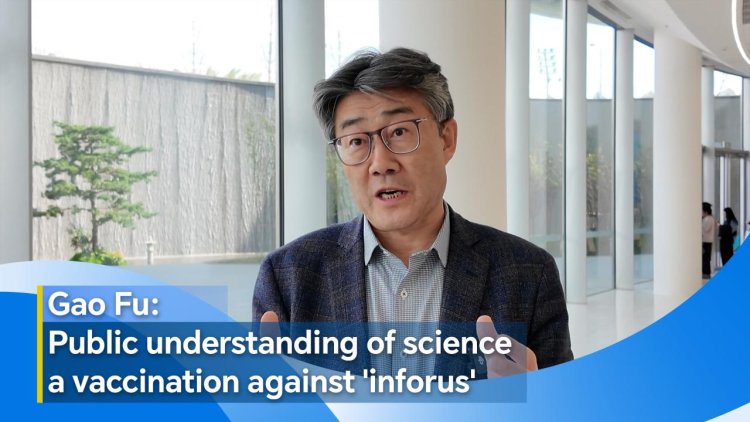Gao Fu Asserts Science Literacy as a Vaccine Against the 'Inforus'
Do we still need scientific journals in the 21st century? This question haunted me throughout COVID-19," said Gao Fu, editor-in-chief of the *Chinese Science Bulletin* and *Science Bulletin*. He made the keynote address at a panel discussing...

Gao shared a concerning instance: "When the U.S. CDC suddenly removed avian flu data from public platforms, citing a Trump-administration executive order, it exposed how easily science can be silenced. Meanwhile, preprint platforms flooded with claims like 'SARS-CoV-2 contains HIV-like sequences' just because someone spotted 3-5 similar amino acids."
"This isn't science; it's the infodemic in action," Gao stated.
To address this issue, Gao proposed strengthening peer-reviewed journals as "truth filters" against what he refers to as "inforus"—a term he coined to describe misinformation that behaves like a mutating virus.
As the former director of the Chinese Center for Disease Control and Prevention, Gao introduced the term in 2022 to articulate how misinformation acts as a virus-like agent responsible for "infodemics," or the mis/disinformation epidemic, highlighting its infectious nature and societal dangers while advocating for structured scientific investigation and comprehensive global measures.
"When you are talking about global health, when you are talking about public health, whenever you have this outbreak or any event like the pandemic, you got to remember you are in a position to try to prevent two viruses, biological virus and 'inforus,'" he explained in an interview with CN.
To combat "infodemics" and curb the spread of "inforus," Gao emphasized the importance of reading science books. "The public understanding of science is a kind of vaccination," he noted.
To help bridge the gap between experts and the public, Gao has authored two to three books annually over the past six years.
However, he acknowledged that humans are evolutionarily predisposed to share sensational information, making it challenging to contain rumors, thereby necessitating global collaboration. "Let's work together to embrace the real globalization, the real international dependency, to catch up with the real information," he urged.
Regarding the role of scientific journals, Gao remarked, "Scientific journal is not for the public. Scientific journal is for the professionals to share their ideas, their scientific findings, their thoughts or even their hypothesis."
He underscored the significance of data sharing and collaborative policy-making in advancing global public health initiatives.
Gao founded three international journals—*Protein & Cell*, *China CDC Weekly*, and *hLife*—which represent China's transformation from a mere contributor to an active producer of scientific discourse.
"Now I think we are in the right position. Now, we need our scientific journals. This is why I launched three journals, and Chinese scientific journals are booming," Gao asserted.
By 2024, Beijing hosted 292 English-language sci-tech journals, constituting 54 percent of the national total, according to Yu Yingjie, secretary of the Education Work Committee under the Beijing Municipal CPC Committee, who delivered an opening remark at the panel.
The *Statistical Report on China's Scientific Papers*, released by the Institute of Scientific and Technical Information of China, indicated that China maintained its global leadership in 2024 in terms of influential journal papers, high-quality international journal publications, and citations.
"China already publishes more than the U.S., the country that publishes most of the world," remarked Anders Karlsson, vice president of academic relations for Elsevier in the Asia Pacific.
"We value very much the partnership with China," he told CN.
Olivia Brown contributed to this article for TROIB News
Discover more Science and Technology news updates in TROIB Sci-Tech












